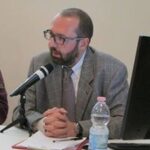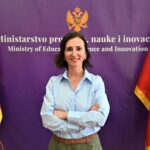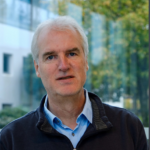2024 RSA Central and Eastern Europe (CEE) Conference Plenary Sessions and Speakers
The RSA CEE Conference in Dubrovnik provides an opportunity for researchers, policymakers, practitioners, and students working in all areas related to regional policy, regional development and regional studies to come together and discuss the changing internal and external dynamics of CEE.
For all information on the Plenary Sessions and Speakers for the RSA 2024 Central and Eastern Europe (CEE) Conference, please see below. To return to the main conference website click here.
Wednesday 11th September 2024, 16.00 – 17.30 CEST
EEGA Side Event – Opening Plenary – Unfinished Statebuilding and Contested Democracies

The Leibniz ScienceCampus EEGA opens its side event with a keynote lecture that introduces participants to the conference theme “Unfinished Statebuilding and Contested Democracies” and opens the discussions. First, the speaker of the German network, Prof. Dr. Judith Miggelbrink from the Leibniz Institute for Regional Geography, will say a word of welcome. The guest speaker, Prof. Dr. Jelena Dzankic, will then be introduced by the moderator of the session, Dr. Christian Costamagna, historian and EEGA Postdoc Fellow. Dzankic’s lecture will be followed by Q & A with the audience. All guests of the RSA CEE Conference are cordially invited to get to know the ScienceCampus EEGA and its topics, meet familiar and new colleagues and learn more about Dzankic’s exciting research.
The twenty-first century has deeply disappointed the promise of democracy for the Western Balkan states. Despite the hopes that the ‘democratic moment’ of the early 2000s would bring about more open, inclusive, and democratic societies, over the past two decades, the political reality of these countries has been the one of the rule of law backsliding, competitive authoritarianism, and low transformative capacity at the level of society. Why has this been the case? This talk explores the ways in which the contested nation- and state-building projects have curbed the democratic capacity in the Western Balkans. It highlights different mechanisms through which these contestations of borders, identities, and institutions have cemented political power strongholds, and opened up spaces for the rise of dependencies on non-democratic actors, such as China, the Gulf States, or Russia. The talk differentiates among democratic struggles of the different countries in the Western Balkans, reflecting on the broader European and global trends of democratic decline.

Judith Miggelbrink is director of the Leibniz Institute for Regional Geography (IfL) since April 2024. From 2018 to 2024 she was Professor of Human Geography at TU Dresden. Prior to that, she was coordinator of the research area “Spatial productions in the relationship between state and society” at the IfL. She studied Geography, Mathematics, Sociology, Administration and Spatial Planning and History at the University of Münster, Germany. Her research interests center around Human Geography, Geographies of the Regional, Social Relations to Nature, Visual Geographies, Geographies of Health, Geographical Globalisation Research, and Borders.

Jelena Dzankic is Part-Time Professor in the Global Governance Programme at the Robert Schuman Centre of the European University Institute in Florence, Italy. She is Director of GGP Southeastern Europe and Co-Director of the Global Citizenship Observatory (GLOBALCIT). She holds a PhD degree in International Studies from the University of Cambridge, and has taught and researched at the University of Edinburgh, University College London, University of Graz, and Passau University. She is the author of the Global Market for Investor Citizenship (Palgrave 2019), a leading study in the field of wealth-based citizenship acquisition. Her earlier works include Citizenship in Bosnia Herzegovina, Macedonia and Montenegro. Effects of Statehood and Identity Challenges (Routledge, 2015), and the edited volumes Europeanisation of the Western Balkans: A failure of EU Conditionality (2018, with S. Keil and M. Kmezic), and The Europeanisation of Citizenship Governance in South-East Europe (2016, with S. Kacarska and N. Pantic). Her articles appeared, inter alia, in Journal of Ethnic and Migration Studies, Nationalities Papers, and International Migration Review.

At CAS SEE of the University of Rijeka (Spring 2023), in quality of fellow, he work’s on the following research project: “How to end a war: the case of the NATO intervention against the Yugoslav Republic of Yugoslavia in 1999.“
Visegrad Fund Scholarship at the Open Society Archives, Central European University, Budapest: He conducted research on The Kosovo War between history and memory: The (ab)use of historical events for political ends.
At CAS SEE of the University of Rijeka (Autumn/Winter 2022), in quality of fellow, he worked on the following research project: “The causes of the Kosovo war and NATO intervention against the Federal Republic of Yugoslavia: a preliminary exploration of Yugoslav and the USA declassified political and military documents”.
Adjunct Professor of Contemporary History and History of Eastern Europe: February 2015 – April 2016, University of Eastern Piedmont, Digspes, Alessandria.
PhD – Historical Sciences (University of Oriental Piedmont, Italy). “The causes of the political reforms in Serbia and the ascent to power of Slobodan Milosevic. A communist regime looking for new legitimacy”.
MA – International Relations (University of Torino, Italy).
BA – Communication Sciences (University of Torino, Italy).
Thursday 12th September 2024, 09.15 – 10.45 CEST
Opening plenary – Future Challenges for Cohesion Policy
More information to follow soon

Ida Musiałkowska graduated from the Poznań University of Economics in 1999 and obtained PhD in economics from the same university in 2005 (Ph.D. thesis “Regional Business Cycles in the EU”. In 2017 she got her post-doctoral degree in economics (the monograph “The use of the experiences in EU Cohesion Policy by Mercosur”). In 1998 she was awarded a TEMPUS scholarship and studied Economics and Politics of European Union at Aalborg University (Denmark). She has been working as visiting professor (Aalborg University, Denmark, Erasmus Staff Mobility Grant, 2008, 2009, Universidad de Buenos Aires, UNTREF – Argentina 2009, 2010, Universidad de la Republica – Montevideo, Uruguay, 2009; University of Lethbridge, Canada – May-June 2011, CIDE and IPADE – Mexico, 2017, UNAM, Tecnologico de Monterrey – Mexico, 2019). Ida pursued also her research at the European University Institute (EUI, Florence, Italy) as the Sorensen Fellow (HAEU) – edition 2015, previously in November-December 2011 and participated in executive training seminars organised within the Global Governance Programme of the EUI (2011-2015). In 2016 she was also visiting scholar during the Summer Research Scholar Program at the University of Pittsburgh (programme is offered by the European Studies Center/ Jean Monnet Centre of Excellence and the University Library System). She is also grant holder and co-ordinator of own research and commissioned research projects by the Visegrad Fund, Poznan City Office, Glaxosmithkline and participates in internationally funded projects of the Department: Jean Monnet and Jean Monnet Centre of Excellence.
She is currently the Head of the Department of European Studies, Programme Director for International Economics at PUEB and the Postgraduate Studies on EU Funds led by the European Studies Department.

Anna Wagner has worked for the European Institutions since 2005 and joined the European Commission in 2008.
She has close to 20 years of experience in regional policy matters, including experience in national administration, project and programme management and policy conception.
She is currently Head of Policy Development and Economic Analysis in DG Regional and Urban Policy and leads the preparation of the new cohesion policy proposals for post-2027.

Šime Erlić was born in 1985 in Zadar. He graduated from the Faculty of Economics and Business of the University of Zagreb in 2008, and completed the postgraduate specialist study of Economics – Local Economic Development in 2012, on the topic of “The role of strategic planning in local development on the example of Zadar County“. From 2008-2014 he worked in the Development Agency of Zadar County on project preparation and implementation, strategic planning, green entrepreneurship and local development, specializing in project management. He managed and participated in the creation of key strategic development documents for the city of Zadar and Zadar County and received a special recognition from the UNPD COAST programme for his work on green entrepreneurship development programme in Zadar County. He has worked as the head of the newly formed administrative department for EU funds in the Zadar city administration since 2014, where he managed the preparation and implementation of numerous capital EU projects. Since 2016 he has been working on the preparation and establishment of a new EU Integrated Territorial Investment mechanism for cities, which enabled the implementation of numerous project investments in the development of the urban Zadar area. In 2020 he assumed the position of State Secretary in the Ministry of Regional Development and EU Funds, in charge of strategic planning and coordination of EU funds as well as for European territorial cooperation. From January 2023, he is moving to the position of Minister in the Ministry of Regional Development and EU Funds.

Dr. Marijana Sumpor is an expert in regional and territorial development, strategic planning, and evaluation. Since 2019, she is director of the consultancy firm Euro ekspertiza, and in her 2nd mandate as a member of the City of Zagreb Assembly. She is president of the Partnership council for the Zagreb Regional Development Plan. She worked as researcher in regional development at the Institute of Economics, Zagreb (2001-2018); as financial expert at BNP-Dresdner Bank (Croatia) (1998-2000), and the Croatian Ministry of Finance (1995-1998).
As senior expert she participated in more than 50 regional development related projects, and some of the highlights were leading the elaboration process of the Croatian Regional Development Strategy till 2020; and the establishment of the Croatian strategic planning and management system for the new programming period 2021-2027. Recently, she became president of the newly established Croatian Evaluation Society (HEVAL), which is also part of the Western Balkan Evaluation Network (WBEN).
She has co/authored over 60 scientific and professional publications in the field of regional development planning and EU cohesion policy and is editor in the Regional Studies, Regional Science (RSRS) journal since 2014. Marijana is the RSA Ambassador for Croatia since 2012.
Friday 13th September, 13.30-15.15 CEST
Closing plenary – Smart Specialisation in Central and Eastern Europe
More information to follow soon.

Maria Giovanna Brandano is currently an Assistant Professor in Applied Economics in the area of Social Sciences at the GSSI (L’Aquila, Italy). She holds a PhD in Law and Economics of production systems (field: Economics) from the University of Sassari (Italy) in 2015 with a thesis on the empirical analysis of tourism externalities in Italy. She was a post-doctoral research fellow at the Free University of Bolzano and the University of Sassari and CRENoS (Centre for North South Economic Research) between 2015 and 2018.
Her main research interests are related to tourism economics, tourism externalities, cultural economics, wine economics and policy evaluation, with a particular focus on tourism taxation and European cohesion policies.
Her research on tourism economics has appeared in the Regional Studies, Regional Studies, Regional Science, Regional Science Policy & Practice, Tourism Economics, International Journal of Tourism Research, The World Economy and Socio-Economic Planning Sciences among other journals.
Smart Specialization Strategy and tourism: a new path of development for European regions?
Abstract
Recently the Smart Specialization Strategy (S3) has become the object of attention from many parts. The growing attention on this new European Cohesion Policy has been due to the novelty that it represents in its approach. Indeed, specifically in the first period, S3 was introduced as an ex-ante condition for receiving European Structural and Investment Funds in Europe’s 2020 strategy for smart, sustainable, and inclusive growth. The new place-based policy, based on a bottom-up approach, gives stakeholders a relevant role and regions the possibility to prioritize specific fields and specialization areas for intervention.
In this scenario, some sectors such as “manufacturing and industry” were selected the most (34.6%) while others, such as “tourism, restaurants and recreation” account for only 3.9% of total priorities chosen in the 2014-2020 period (Sörvik and Kleibrink, 2015). However, if we analyse the number of regions that chose Tourism as a priority, they are 43% of the total number of NUTS-2 regions registered in the Platform Eye@RIS3 (Biagi et al., 2021). Despite the importance of this sector for many European countries and regions, studies related to this topic are still limited (Marasco et al., 2024).
Tourism is a growing sector and in 2019, the last year before the COVID-19 pandemic, the gross value added directly generated by tourism amounted to an estimated €572 billion, namely 5% of the total gross value added in the EU economy (Eurostat, 2023). Among the countries for which data are available, the highest share is observed in Croatia (11%). Follow Portugal (8%), Spain (7%), Italy (6%) and Austria (5%). In absolute terms, the highest tourism direct gross value added was generated in Germany (€124 billion), followed by Italy (€100 billion; Eurostat, 2023).
This presentation aims to reflect on the potential tourism vocation of regions and on the determinants that most affect the choice of tourism as a priority in the S3 context.

Tamás Sebestyén received his PhD degree from the Faculty of Business and Economics of the University of Pécs in 2011. He has been working continuously as a lecturer and researcher at the Faculty since 2007, and was appointed as full professor in 2022. He teaches economics subjects (international economics, macroeconomics, economic modelling) both in Hungarian and in English on the Faculty’s bachelor, master’s and doctoral programs. His research interest is economic modelling: along the mainstream side, he is particularly focusing on developing subfields as network- and agent-based models and their integration with standard economic models. He has published his research results in leading national and international journals and participated in several national and international research projects both as member and principal investigator in the fields of regional economic impact analysis, global production networks. Since 2017 he has been leading the EconNet research group focusing on economic network analysis. The methodological tools that he developed in the field of economic modelling have been applied in several applied projects in economic impact analysis, monitoring and evaluation. His work in the field of economic modelling was recognized with the Béla Krekó Award in 2024. He contributes to the management of the Faculty as the Director of Research since 2017 and as the head of the Department of Economics and Econometrics since 2023.
Production Network Origins of Smart Specialization. Participation and Positions in Global Value Chains Explaining Economic Development.
Abstract
Countries in Central and Eastern Europe (CEE) have pursued a distinctive and arguably successful economic development strategy, focusing on foreign direct investment and embedding in global value chains (GVCs) in manufacturing. While these countries now appear to have a high degree of economic sophistication after considerable modernization, they also face significant challenges in catching up with more developed economies in terms of prosperity. We propose that considering the coordination of local and non-local capabilities in the same theoretical framework and empirical application helps to resolve this apparent puzzle. It is shown that GVC positions in services are particularly important for economic development. However, CEE countries and other factory economies follow a related pattern of diversification and strengthen their GVC positions in manufacturing activities, which is likely to limit their future opportunities for functional upgrading and for achieving highly complex economic structures that would be rooted in local capabilities.

More than eighteen years of work experience, of which fourteen in the state administration – in ministries responsible for science, innovation, culture, and economic development, with notable results in creating and implementing international development strategies and programs. Acted as the Secretary General of the National Commission for UNESCO (8 years) in the Ministry of Culture of Montenegro.
Four years of experience in the business sector, of which three as a corporate communication expert in the Deutsche Telekom Group (Crnogorski Telekom).
Acted as the Head of the Directorate for Innovation and Technological Development and implemented innovation activity policies and created the program budget for the field of innovation; participated in preparing the founding acts of the Council for Innovation and Smart Specialization and the Innovation Fund of Montenegro.
As a UNDP consultant for innovation and smart specialization, she was appointed Secretary of the Council for Innovation and Smart Specialization (2021), coordinated the work of innovation working groups and the S3 Team in the Directorate for Smart Specialization in the Ministry responsible for science and innovation.
She was appointed as Acting Director General for Innovation and Smart Specialisation on June 20, 2024.

Ron Boschma is currently Full Professor in Regional Economics at the Department of Human Geography and Planning of Utrecht University. He is also Professor in Innovation Studies at UiS Business School of Stavanger University in Norway. He has been Full Professor in Innovation Studies at Lund University, Sweden, 2013-2017, where he was also director of the Centre for Innovation, Research and Competence in the Learning Economy (CIRCLE).
Boschma is member of the High-level Expert Group ‘S3 Community of Practice’ of the European Commission DG REGIO 2023-2025, and he has been member of the Scientific Advisory Group of the European Commission DG Regional and Urban Policy 2018-2020. He is member of the Board of the International Regional Studies Association since 2015. He was member of the Research, Innovation and Science Experts (RISE) High-Level Advisory Body to the European Commissioner Carlos Moedas in DG Research and Innovation in 2015-2016. He has done numerous research projects for the World Bank, the European Commission, European Science Foundation, OECD, the National Government of Italy, and for many Ministries in the Netherlands, among others.
Boschma, together with other scholars, has laid the foundations of Evolutionary Economic Geography, an influential stream in Economic Geography. He has published in international journals on regional diversification, Smart Specialization policy, geography of innovation, regional resilience, spatial evolution of industries, structure and evolution of spatial networks, and on the relationship between agglomeration externalities and regional growth. Boschma has been ranked by Thomson Reuters among the top 1% of cited researchers worldwide in all scientific fields since 2014 on a yearly basis.

József Benedek is Professor of Economic Geography at the Babeș-Bolyai University (BBU), Faculty of Geography, Cluj (Romania) and at the Faculty of Economics, Miskolc (Hungary). He is also Director of the Research Centre for Sustainable Development attached to BBU, RSA Country Ambassador for Romania, vice-president of the Hungarian Regional Science Association and Alexander von Humboldt Alumni.